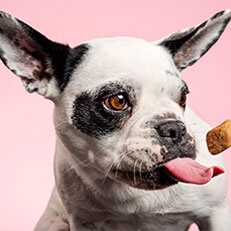
Puppy Socialisation: Why Early Experiences Shape a Dog’s Whole Life
If you’ve ever wondered why some dogs are calm and confident while others bark at every little thing, the answer often lies in what happened — or didn’t happen — in the first few months of life. It’s called socialisation, and it’s one of the most important parts of raising a healthy, balanced dog.
What is Socialisation?
Socialisation is the process of safely and positively exposing a puppy to the world during a sensitive developmental period, known as the socialisation window. This window opens at around 3 weeks of age and begins to close by 12–14 weeks. During this time, a puppy’s brain is especially open to new experiences. What they encounter now becomes “normal.” What they miss may later be perceived as threatening.
According to the classic research by Scott & Fuller (Genetics and the Social Behavior of the Dog, 1965), puppies who are not exposed to a variety of people, dogs, sights, sounds, and environments during this critical phase often grow up to be anxious, reactive, or even aggressive. And sadly, these problems are often very difficult — sometimes impossible — to fully reverse later.
The “Covid Dog” Generation
The pandemic created a perfect storm. Puppies were bought as excuses to go out during lockdown or because people “finally had time” while working from home. But these dogs missed out on crucial early experiences — they didn’t meet other dogs, visit busy places, or learn to be alone. Now, many owners of these so-called “Covid dogs” are struggling with fear-based behaviour, separation anxiety, and poor social skills.
How to Socialise a Puppy Properly
Proper socialisation doesn’t mean overwhelming a puppy or forcing them into scary situations. It means gentle, positive exposure. Let them meet people of all ages, other friendly dogs, hear traffic, walk on different surfaces, and experience everyday sounds — vacuum cleaners, bicycles, café life, and so on. Always go at the puppy’s pace and pair new things with praise or treats.
Short, positive experiences build confidence. Negative or overwhelming ones can do the opposite.
Let the Older Dog Teach
One of the most powerful tools in puppy socialisation is a calm, well-adjusted adult dog. Puppies learn from watching — they literally model behaviour. A puppy living with a stable older dog will often pick up toilet training, walking calmly on a lead, and polite play far quicker than one raised alone. Many dog owners can attest: the elder dog becomes the best teacher.
Final Thoughts
The socialisation window doesn’t reopen. You don’t get another shot. This short period is your opportunity to show your puppy that the world is safe and full of good things. Do it right, and you’ll likely raise a confident, friendly dog. Miss it, and you may spend years trying to undo the consequences.
At Nika Pet Food, we believe nutrition and behaviour go hand in paw. We’re here not only to support your dog’s health through real, honest food — but also to help you understand their emotional needs too.





